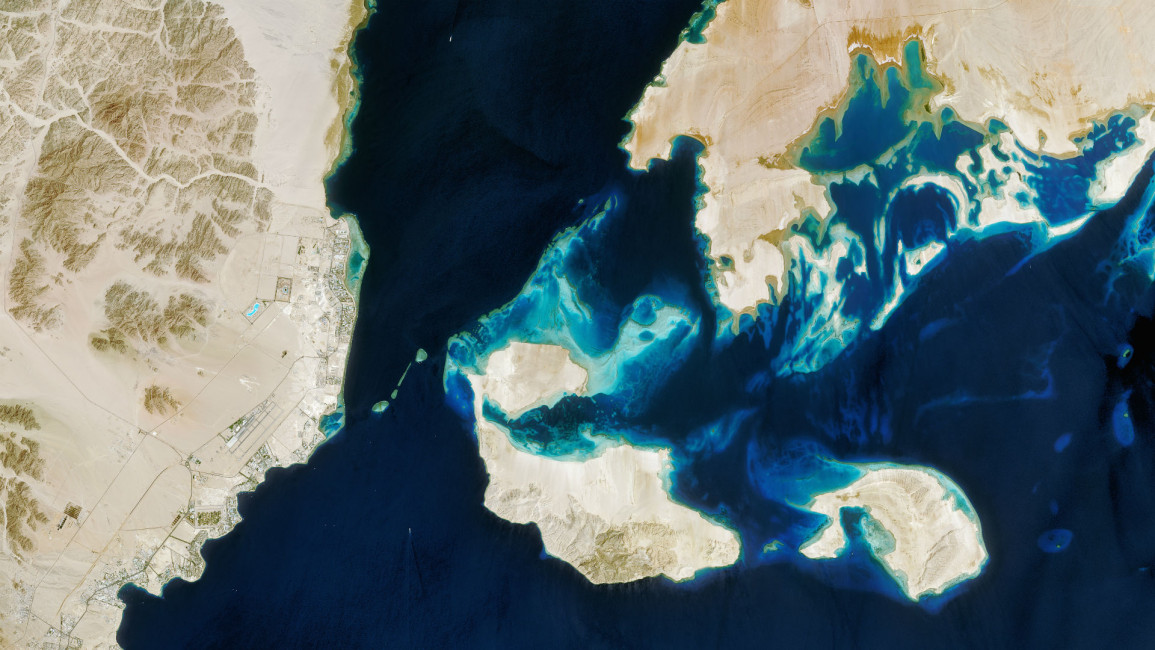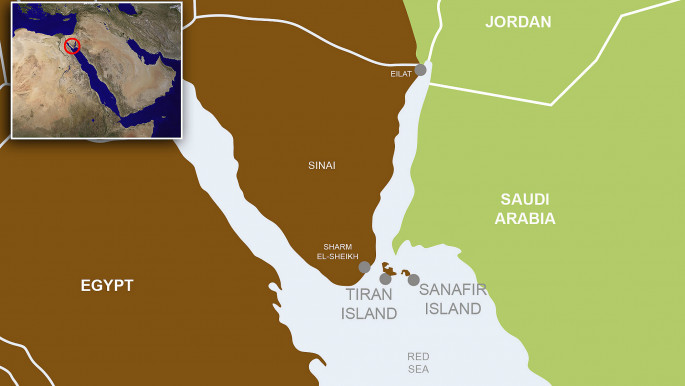Permission to proceed: Egypt-Saudi island deal 'needed Israeli approval'
Egyptian authorities sent Saudi assurances to Israel that the transfer of Tiran and Sanafir islands would not compromise Israel's security and not violate a peace accord between Egypt and Israel.
Egypt acted a mediator for the Saudi-Israeli correspondences as the two regional powers have no official relations.
"The approval of the US and Israel on these security arrangements was necessary for a new country to enter the Israeli sphere, which Washington considers a part of its national security," the source, who spoke on the condition of anonymity for fear of reprisals, said.
"This was regardless of the blurry relationship between Saudi Arabia and Israel and the lack of clarity whether this step would bring them closer diplomatically," he added.
The source said that Deputy Crown Prince Mohammad bin Salman send a communication to Egyptian authorities in April last year after the maritime deal was signed, confirming that Riyadh was committed to inheriting the obligations related to the islands.
 |
The approval of the US and Israel on these security arrangements was necessary for a new country to enter the Israeli sphere, which Washington considers a part of its national security |  |
Egypt sent troops to Tiran and Sanafir in the mid-1950s in response to a Saudi request to protect them from Israeli invasion. Israel occupied them in 1967, but evacuated the islands in 1982 in line with the peace treaty with Egypt.
Multinational Force and Observers [MFO] has soldiers stationed at observation points on the islands to ensure both parties abide the treaty.
In the following months, a Saudi-Egyptian committee worked on drawing up maps of the new maritime borders, despite public outrage over the deal. These efforts came to a halt in September when relations between Riyadh and Cairo fell apart amid disagreements over Syria.
The source said that recent communications between Egypt and Saudi Arabia to resolve the issue led to Egyptian authorities sending word to Israeli Prime Minister Binyamin Netanyahu on December 18 that Egypt was serious about the deal and that the Saudis had pledged not station military forces on the islands.
On December 19, Netanyahu replied that he had no objections to the handover, as long as the Saudis adhered to the peace deal, the source said.
Late last month, Egypt's Cabinet approved the transfer despite a court ruling the transfer unconstitutional.
The state-run MENA news agency reported that President Abdel Fattah al-Sisi's government had approved the deal and sent it to parliament for ratification despite the court ruling, which the government has appealed.
The court is due to issue its final verdict on January 16.



![President Pezeshkian has denounced Israel's attacks on Lebanon [Getty]](/sites/default/files/styles/image_684x385/public/2173482924.jpeg?h=a5f2f23a&itok=q3evVtko)



 Follow the Middle East's top stories in English at The New Arab on Google News
Follow the Middle East's top stories in English at The New Arab on Google News


